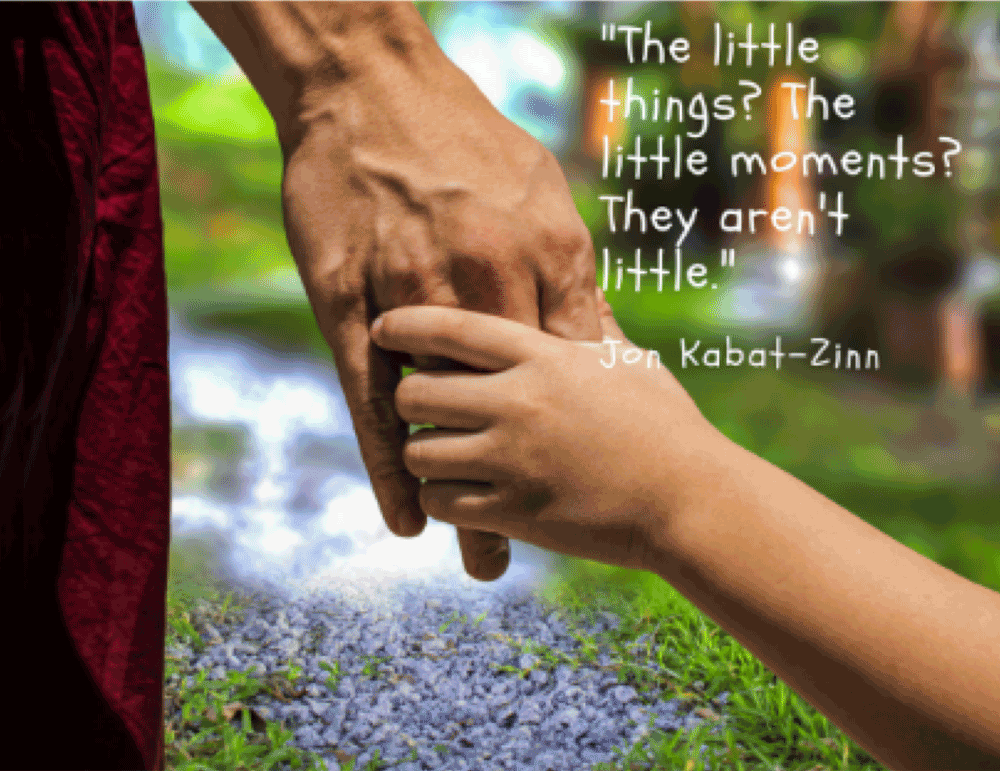How much of your life are you actually living?
My previous blog, ‘Negative Nellyism’ looked at how we can stop untrue thoughts from taking over our brains and our minds. We do this by acknowledging it as just a thought, not necessarily a truth. After all, we know from that, that just because we think something, it doesn’t make it true, does it?
In a different vein
This time I’m going to talk about when we act without thinking. This isn’t a ‘thoughtless act’ like when someone uses all but the last dribble of milk but leaves the carton in the fridge. Or when it’s raining, and someone takes your umbrella from the stand at work because they left theirs in the car. This is different. It’s when we are acting but not thinking about what we are doing. We’re not paying attention, so we are doing something on autopilot, inattentively, or put another way, mindlessly.
Now, ‘mindless’ can sound like we are unintelligent, foolish or senseless. What it really means is ‘without paying attention.’ Another synonym for mindless is ‘unthinking.’ The irony is this: we are often acting without paying attention, but we are thinking of anything and everything – just not about what we are doing, but most of us do many things every day mindlessly. It’s a good job we can multi task though; can you imagine how long it would take you to cook dinner for four?
Things we do mindlessly
We drive mindlessly, or on autopilot. Let me explain what I mean by this. Once we have learnt to drive it doesn’t take long before we don’t have to think about every move we make, when to change gear, which indicator to turn on. We don’t have to think too much about how far to turn the wheel, and when – it becomes almost instinctual.
So, what would driving consciously, or mindfully be like? You would be paying attention to the cars on the roads, people on the pavements, potential hazards, be more aware of our speed, the distance between us and the car in front. There are often more accidents in poor weather conditions, which could mean that people are not paying attention to them either. That’s just brainless! Mobile phones are a massive distraction, we all know that, but what about our own minds? We can make a journey and when we get there, not remember a significant part of it. We’re certainly not paying attention as we should be, are we?
Other things we do mindlessly every day that we could do mindfully:
Mindfully make a cup of tea.
Have you ever really paid attention with all your senses while making a cuppa?
From filling the kettle, noticing the steam as it boils, warming the cup (a ritual of mine) adding the bag, covering it with boiling water… and on and on using all our senses until we mindfully savour that first sip… Ahhhhhh…
Mindfully cleaning your teeth.
Apart from the toothpaste froth, what else do you notice when you brush? Here are a few things I noticed last night:
Firstly, I noticed that I have five different toothpastes that are all on the go. After smiling in the mirror, I chose a whitening one – too much tea/coffee today and not enough water. Then I noticed the consistency of the toothpaste. No, they’re not all the same, some are more solid than others, smoother, or grittier, more minty. Next, I noticed the smell. Our senses are important, and they come alive in our conscious or mindful activities. When we do things on autopilot we scarcely notice them. After the smell came the temperature of the toothpaste. I had just had a hot drink, so it felt cold. My toothbrush is a Sonic one which has a few settings, so I enjoy the different sensations and vibrations from the quite high pitched and effervescent feeling to the slower, more pulsating gum massage setting. Moving the brush over my teeth and gums, paying attention to the senses, noticing how much froth I have: seeing, feeling, tasting and even hearing the process, from the inside, of cleaning my teeth really didn’t take much longer than it usually does but my mouth feels sparklingly clean afterwards. Let’s not forget the rinse in this process. Paying attention to the temperature of the water, the sensations of it sloshing around as you push and pull it through your teeth and around your gums. Then of course there’s the spit.
You may be wondering what my oral hygiene has to do with the autopilot. The simple answer is because I do it mindfully, or consciously rather than on auto pilot, or mindlessly.
So where is this all leading?
When we do things without paying attention, we aren’t ‘present’. When we aren’t present we aren’t in the moment and this means we are missing out on so many wonderful things.
Yes, I agree, cleaning our teeth isn’t necessarily a wonderful thing, but with some mindfulness training or experience, we come to recognise that so much of life is wonderful, or it can be if we appreciate it.
The problem is that when we ‘can’t find the time’ to take the time to pay attention we end up running on autopilot which can be an insidious process, sneaking up on us and taking us by surprise. However, the good news is that once you’ve gained an awareness of what your autopilot is, and when it’s triggered, you can learn to unhook from it.
Your autopilot might be an unhelpful thought process, which can spark a chain reaction leading to some seriously self-disturbing beliefs, or letting someone continually push your buttons, or that mean inner critic, the one with the louder voice that your inner champion (if you have one). When you ruminate or over analyse or however your thought process works, you can learn to recognise when there’s a danger that it can be overwhelming. With a bit of practise, you can learn to remove yourself from it and allow yourself to find a state of mindful awareness.
Sometimes we just need to make that conscious decision to step out of autopilot and choose to pay attention, in a particular way.
Jon Kabat Zinn the founder of the mindfulness movement back in the 1960’s defines mindfulness as:
- Paying attention to something (usually the breath)
- In a particular way
- On purpose
- In the moment
- Non-judgementally
Being present or being in the moment really does help us to see the little things that we often discount as trivial, unimportant or insignificant, so when we make the effort to pay attention to the moment, it can be life changing.
We step out of our heads, leaving the chaos we’ve managed to create up there in our brains and drop into our bodies where we pay attention to the sensations of breathing.
When we breathe we are alive, yet unless we are anxious or have exercised and are breathing heavily we don’t notice that we are doing it. Does this mean that we don’t notice we’re living? It might feel like that sometimes. Each breath is different to the last one and that one is different from the next, yet we take it very much for granted, so why not give it some attention?
The breath can become like an anchor so that when we recognise that our mind has wandered (and it will) we can simply return to paying attention to the breath. Paying attention, moment by moment. In a particular way, on purpose, without judgement.
When we do this, it can slow down our heart rate, lower our blood pressure, relax our minds and create a peaceful space where there was once chaos.

With life comes breath, so doesn’t it make sense that if we pay attention to the breath, we can begin to feel like we’re really living?
*If you have respiratory complaints it might be advisable to check with your GP before commencing this kind of meditation.*


